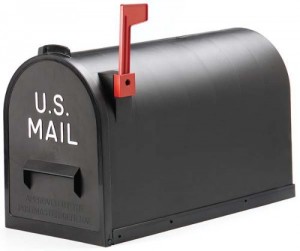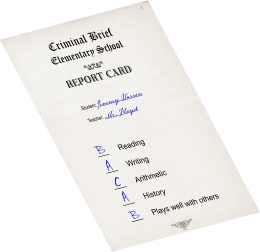Saturday, October 4: Mississippi Mud
A SENSE OF DISCLOSURE — PART 2
by John M. Floyd
 Last week, I wrote about the fact that I usually don’t tell others anything about my “stories in progress,” whether the stories are in idea form or outline form or already half-written. My point was, a storyline that’s not yet completed becomes less interesting to me if I tell others about it, and finishing the project is then not as much fun. I realize that’s just one of my quirks — I have many — and other writers might take a different approach.
Last week, I wrote about the fact that I usually don’t tell others anything about my “stories in progress,” whether the stories are in idea form or outline form or already half-written. My point was, a storyline that’s not yet completed becomes less interesting to me if I tell others about it, and finishing the project is then not as much fun. I realize that’s just one of my quirks — I have many — and other writers might take a different approach.
In this column, I’d like to give you my views on the disclosure of completed stories — those that are finished and supposedly ready for submission. The question is, do you (the writer) show those to others, and thus gather advice and opinions, before sending the stories out to editors?
Do as I say and not as I do
Personally, I don’t often show my finished short stories to anyone before I submit them. The two exceptions are my wife and my daughter — they sometimes read my stories before I send them in, if schedules allow it and if I think a particular story is one they’d be interested in — because I know they’ll be brutally honest with me. But usually I just write the stories, edit them myself, and send them off into the great beyond without getting others’ opinions. I’m not saying my stories are so good they couldn’t use outside assistance, but after many years and many rejections I think I have at least a pretty fair idea by now of what works and what doesn’t, in my kind of short stories. Besides, I write so many of them the critiquing process itself could become almost more trouble (to me and my proofreaders) than it’s worth. And, to be painfully honest, part of it may just be a reluctance to show anyone else what I’ve produced until it’s been vetted by a real editor, and in print.
them myself, and send them off into the great beyond without getting others’ opinions. I’m not saying my stories are so good they couldn’t use outside assistance, but after many years and many rejections I think I have at least a pretty fair idea by now of what works and what doesn’t, in my kind of short stories. Besides, I write so many of them the critiquing process itself could become almost more trouble (to me and my proofreaders) than it’s worth. And, to be painfully honest, part of it may just be a reluctance to show anyone else what I’ve produced until it’s been vetted by a real editor, and in print.
But I realize a lot of writers welcome and even depend on outside input immediately after completing a project, and I understand that. In fact I encourage it. Sometimes it can be a great help, in evaluating both content and style.
 If you write a short story and you do choose to let others check it over before you submit it, here’s my suggestion: Let several people read it, not just one person. And no matter what I said earlier, close friends and family are seldom good choices, because they tend to try to spare your feelings. (Your mother, especially, should probably not be one of your early readers — I found out long ago that my mom thinks everything I write is great, even if it stinks like Bourbon Street on Sunday morning.)
If you write a short story and you do choose to let others check it over before you submit it, here’s my suggestion: Let several people read it, not just one person. And no matter what I said earlier, close friends and family are seldom good choices, because they tend to try to spare your feelings. (Your mother, especially, should probably not be one of your early readers — I found out long ago that my mom thinks everything I write is great, even if it stinks like Bourbon Street on Sunday morning.)
Ladies and gentlemen of the jury . . .
Let’s say you’ve selected five unbiased readers who have no connection with your family tree. When they’ve finished your story and reported back to you, I would encourage you to do the following:
(1) Examine all their suggestions with an open mind.
(2) If each of the five suggests something different, and you disagree with all of them on those points, ignore all five.
(3) If more than one person suggests the same thing, give that item careful consideration, whether you agree with it or not.
(4) If any one of the five says something in your story wasn’t clear, give that careful consideration. (I think clarity is the one most important thing in a piece of writing.)
(5) Buy each of them a Baskin-Robbins double scoop.
Three final points
The first is, be a bit skeptical of criticism, from anyone. Friends, family, strangers, other writers – they’re people just like you and me: we all like and dislike certain things in the stories we read. If I’m corrected on something that’s obviously wrong, I’ll change it happily and gratefully — but if I have strong feelings that what I’ve written is exactly as I want it to be, I usually go with it regardless of what others might tell me. Some changes make things worse rather than better.
Secondly (and this is after submission), if an editor that I respect requests that I change something, and says she’ll publish my story if I do — then I’ll change it. Period. If I don’t completely agree, so what? Later, before I resell that story to another market as a reprint, I can always change it right back to the way I had it the first time. And the truth is, an editor probably knows more than I do about what her readers want.
Last of all, if you’re one of those who are asked by a writer to offer criticism, by all means be honest. Even if you hate the story. To do otherwise might make him feel better for the moment, but you’ll be hurting him in the long run. It’s sort of the literary equivalent of friends not letting friends drive drunk.
hurting him in the long run. It’s sort of the literary equivalent of friends not letting friends drive drunk.
And don’t forget, afterward, to hit him up for your reward.
If the story sells, I’d say a banana split. At least.




















Regional contests can be a way to get feedback. Some charge extra for critiques, but many don’t. Contests often use writers– presumably published writers– as front line judges. Finalist judges might be editors or publishers.
However, I’ve seen critique forms that have made the authors’s jaws drop with irrelevancies. As my mother would say, take it all with a grain of salt.
Like you, John, I show finished stories to my wife for proofreading, but no one else. The lone exception came recently when I sent a story to Leigh to look over before sending it out.
On criticism, even by editors, my favorite story was told by William Campbell Gault. He handed his ninth novel to an editor who had published his first eight. It was rejected so he told her, “Fine, I’ll just take it down the street.” He did, it was published and won an Edgar as best mystery novel of the year.
Good point, Leigh, about contests — they indeed sometimes provide critiques on their entries.
Dick, there’s another good thing about having our wives proofread our finished stories: they already knows all our faults, so there’s no embarrassment involved. I’m not sure I’d want my next-door neighbor to find out I’m such an idiot.
Mine is an eagle-eyed lawyer who not only catches every little thing, but also has two degrees in English literature and can comment constructively on style. I never send anything to anybody to read until Margaret’s had a chance to mark it up with her red pen. I am extraordinarily lucky.
“Some changes make things worse rather than better.”
I have had professional writers read portions of my WIPs where they have suggested I change certain parts not knowing it is important later on in the story. Also, I have learned there are people who have agendas regarding others’ writing, where they suggest deliberately a change that would ruin that portion or all of the manuscript.
It is finding that person who is unbiased is an important factor to provide the necessary feedback.